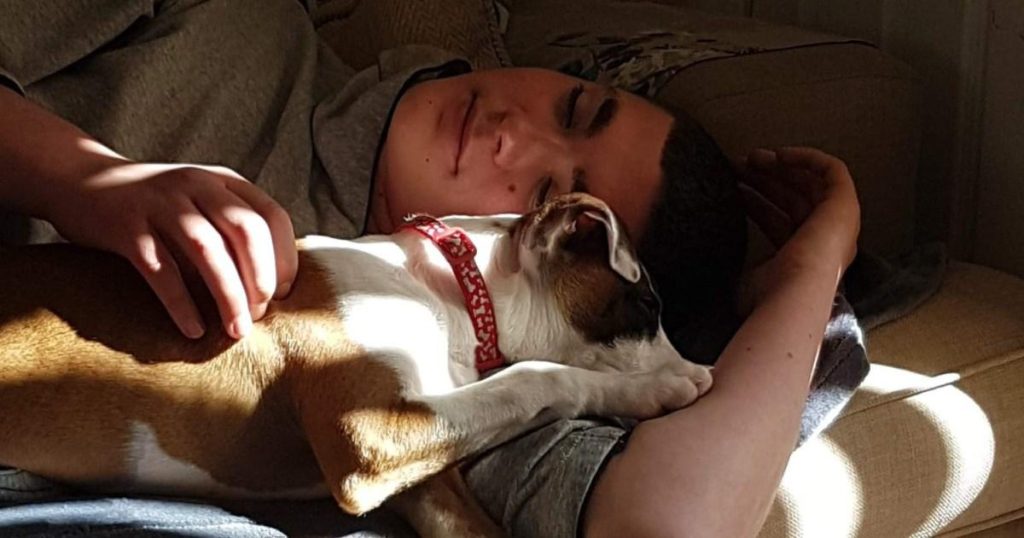The life of Kristy Freckleton and her family was irrevocably altered in December 2021, just days before Christmas and her son Oliver’s 20th birthday. What should have been a joyous time, filled with the anticipation of celebrations and family gatherings, was shattered by an unimaginable tragedy. Oliver, a young father living with his partner and their newborn baby, went out to meet friends one evening. Kristy, despite her motherly instinct to inquire about his plans, chose not to “nag” him, a decision that would later haunt her with agonizing what-ifs. In the early hours of the following morning, a phone call delivered the devastating news: Oliver had been attacked. Initially, his partner shrieked that he had been shot, sending Kristy into a frantic scramble to reach him, hampered by recent surgery and her husband’s COVID isolation. A friend eventually drove Kristy and her other son, Charlie, to the scene, their journey punctuated by the ominous sight of police cars racing past them with flashing lights.
Arriving at the scene, Kristy was met with a chaotic scene of flashing lights and police cordons. Her pleas to reach her son were initially met with resistance as officers tried to manage the situation. She was eventually informed that Oliver had been stabbed, not shot, which offered a fleeting moment of relief. Kristy naively assumed the injury would be minor, perhaps requiring stitches, never imagining the catastrophic truth. Peering under a car, she witnessed paramedics frantically performing CPR and using a defibrillator, her worry escalating with each passing second. The police prevented her from approaching Oliver, who was rapidly losing blood due to severed femoral artery and vein. Kristy’s desperate cries of “Oliver, I’m here!” were met with the devastating finality of the officer’s words: “I’m sorry. He’s gone.” Oliver, full of life and on the cusp of his 20th birthday, had been murdered.
The days and weeks that followed were a blur of grief and disbelief. Oliver’s birthday and Christmas passed in a somber haze, the unopened presents a stark reminder of the stolen future. The community rallied around the grieving family, with hundreds gathering for a balloon release in Oliver’s memory. As the family navigated their overwhelming grief, the investigation into Oliver’s murder unfolded. Around fifteen individuals were arrested, with nine ultimately charged. The new year, 2022, began with the heartbreaking task of saying goodbye to Oliver at his funeral. Amidst the profound sadness, a flicker of hope emerged as Oliver’s daughter uttered her first word, “Dada,” while gazing at his photograph. The remainder of the year was consumed by the pursuit of justice, a grueling process that yielded a mixture of relief and frustration.
The trial resulted in four convictions. Chardon Carnagie, the individual who stabbed Oliver, received a life sentence with a minimum term of 22 years. Two others, Mykel Paddifoot and a 17-year-old girl, were convicted of manslaughter, while Travel Reid pleaded guilty to the same charge. Despite these convictions, the sentences felt inadequate to Kristy and her family, failing to reflect the immense void left by Oliver’s absence. Adding to their pain, Reid was released in January 2024 without their knowledge, a further blow to their sense of justice. The family grappled with the ongoing struggle to move forward, to find some semblance of normalcy in a life forever marked by Oliver’s absence.
The Freckleton family channeled their grief into action, dedicating themselves to raising awareness and supporting initiatives aimed at combating knife crime. They actively fundraised for the Daniel Baird Foundation, an anti-knife crime charity that developed bleed control kits designed to mitigate blood loss in stabbing incidents. They also supported other charities, such as Charlie’s Promise, driven by the desire to create a positive legacy in Oliver’s name. Oliver’s simple dreams – owning a house, providing for his daughter, and enjoying family holidays – serve as a poignant reminder of the future stolen from him. Driven by the injustice of his senseless death, Kristy and her family have become vocal advocates for change, demanding tangible action from political leaders to address the pervasive issue of knife crime.
Three years after Oliver’s murder, Kristy directs her frustration and plea for action towards Prime Minister Keir Starmer. She recalls Starmer’s pledge to tackle knife crime, holding him accountable for the lack of substantial progress. Kristy criticizes the Prime Minister for what she perceives as insufficient action, highlighting a single summit as the sole visible effort. She questions the effectiveness of these initiatives, emphasizing the need for tangible results and questioning how many more lives will be lost before real change occurs. Kristy’s plea is a desperate cry for action, a demand for more than empty promises and photo opportunities. She implores the Prime Minister to prioritize education around knife crime, implement stricter sentences for perpetrators, and commit to ending this devastating cycle of violence. Her story serves as a stark reminder of the human cost of knife crime and the urgent need for effective solutions.
Kristy’s narrative is a powerful testament to a mother’s unwavering love and her determination to prevent other families from enduring the same unimaginable pain. Her message is clear: action is needed now. She calls for more than just talk and summits; she demands tangible change in the form of education, stricter sentencing, and a genuine commitment to eradicating knife crime. It is a plea born of profound grief and a fierce determination to transform tragedy into a catalyst for change, ensuring that Oliver’s death is not in vain. Kristy Freckleton and her family will not be silenced, their voices echoing the desperate need for a safer future for all.




